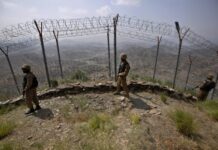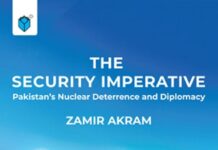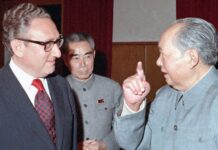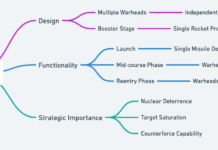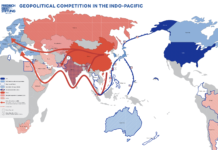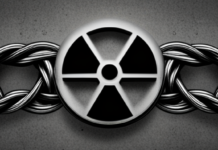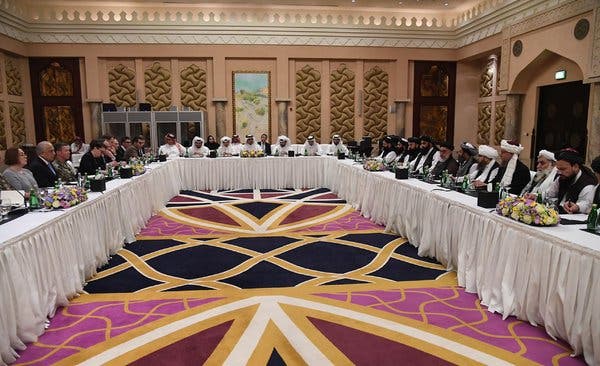Palwasha Khan
‘Countries have to take care of themselves…. You can only hold someone’s hand for so long’ President Donald J. Trump on Afghanistan March 6, 2020
America and the Afghan Taliban are at a crossroads; one designed by Ashraf Ghani. For this merry-go-round is not something as negotiations at Qatar broke down almost as they were about to enter into their breakthrough juncture. Taliban and the United States withdrew to positions previously taken many a times; former resorting to kinetic operations and latter retreating to a pre-negotiation phase. Much speculation and hearsay were put to the table but underlining argument, the core issue remained sketchy. Taliban, willing to mitigate the conflicting situation and the United States aiming to settle their duration of stay at Afghanistan (as well as for other coalition members) was a picture too perfect to be true. Minimizing role of regional stakeholders like Pakistan, Iran and India out of the compromise zone meant that both parties were also willing to dispel ‘vested interest’ but for people back in Kabul, there is disconcert more than there is hope. Afghanistan is not merely in a state of war that uses guns and missiles, rather it is a battleground of wits and information. America’s commitment to ‘not negotiating with terrorists’ and Taliban’s commitment to prove that ‘Afghanistan is a graveyard of empires’ are at odds with one another. War in Afghanistan is one of the longest enduring wars fought by America and its allies but its elasticity is owed to the fact that neither side is willing to negotiate lest it be taken to be retreat/defeat. Troop reduction and Jirga dialogues might have paved the way for what kept happening at Qatar and now in Pakistan but stakeholders of real-time circumstances edict otherwise. What follows as a natural consequence to guerilla confrontations is not just asymmetry of engaged forces but also asymmetry of thought. Settling to resolve Afghanistan is as important as deciding or choosing a clear, decisive, unambiguous victor of this prolonged conflict to prove both efficacy and efficiency of the victor to global audience.
The war of information and sentiment is an unseen war with very visible effects. When guerilla confrontation is initiated against a superior adversary, public sentiment is what becomes an equalizer. At Afghanistan, parties actively engaged in conflict are fighting not to achieve equalization but to assert dominance. Where Taliban are aiming to heighten their moral/religious ‘obligations’ and exhibiting a ‘Holy War’ sentiment, Afghan government is trying to ‘restore’ Afghanistan to its ‘pre-Taliban’ glory inducing both openness to modernization and willingness to promote/encourage a ‘new and improved’ look. For America, however, things are different to a point where it has far more to lose than to gain. American coalition partners are hesitant to offer unconditional support and America is unhappy with NATO and ISAF because its diversity also means dissent. With European nations complaining persistence of the conflict, their desire to ‘bridge the gap’ is also reliant on America’s performance. For America, negotiating with ‘terrorists’ at Qatar was enough flexibility but to withdraw and leave a vacuum would be sufficiently devastating. A ‘hero complex’ can not only bring Taliban back to Afghanistan’s helm of affairs but can also even provide more public mandate. For America this is unchartered territory due to the fact that its design for Afghanistan has more stakeholders and vested interest than usual.
American strategic sentiment is under a four-fold quagmire; negotiating with Taliban generates a negative sentiment for the fact that Taliban automatically assume an ‘equal’ status; Taliban seeking legitimate rights to participate in Afghanistan’s political future upsets current Afghan administration; vested interest of regional and trans-regional stakeholders upsets any permanent solution; and polarization of Afghanistan’s geography indents any stable and uninterrupted future discourse. America’s previous interaction of a similar nature in South America and Iraq is evidence enough of the impact of a polarized and interrupted region. With Taliban driving their ‘impressions’ campaign using religion, culture and prestige as effective munitions to fuel their end of the war, a strong and survivable American counter-narrative is imperative. Information operations without an effective counter-narrative is fighting with one hand tied behind one’s back. Effective and cogent doctrine is as important as the war itself. Taliban, by converting prolonged nature of war into their ‘patience’ in ‘wearing out their enemy’ was augmented by coalition partners’ unwillingness to accelerate their counter operations. With European countries overtly focused on withdrawal and de-escalation as an incentive, Taliban’s ‘victory via attrition’ was fulfilled. Coupling such a sentiment with reminiscence of Soviet-Afghan War further fast-tracked a decisive Taliban authority as far as general sentiment was concerned. Contrary to this, American administrations focused on dialogues and then termination of dialogue displaying a weaker show of counter-attrition which encouraged a meltdown.
For America, a psychological victory is as important as winning the actual war. With current American administration revisiting its policy qua Afghanistan, allowing stakeholders into the solution and still aiming for a dominant position is both volatile and undesirable. For America the situation is looming to be one similar to Vietnam where lack of an effective counter-narrative and administration’s weak ideological footing caused severe fractures in America’s sentimental quotient to statecraft. What America learnt post-Vietnam is what needs to be reapplied; engaging in a narrative campaign before engaging on a kinetic scale. Homeland security narrative ran its course and whatever efficacy it had, was put to question when negotiations with Taliban took place. Dialogue is always an option but for a state to engage in dialogue with non-state entities means their centers of gravity remain incoherent. President Trump and his administration offered two different, conflicting narratives which allowed Taliban to take advantage back home. With Taliban acquiring ‘quasi-legitimate impunity’ at Doha, their negotiations with America provided them an ‘equivalent’ status with America and Zalmay Khalilzad tried to cope up with Trump’s ‘signals’ provided decisive power to Taliban. Such a perception allowed America a window of withdrawal, similar to the one like Vietnam, its aftershocks, however, would be another thing entirely. Washington, without a clear, unanimous and unambiguous counter-perception would be facing a ‘confidence’ crisis at Kabul, something that any competitive stakeholder would be keen to exploit to America’s disadvantage.
For Ashraf Ghani the stakes have never been higher. His approach to consolidate Afghanistan under his wings is eclipsed by the fact that Taliban are gaining momentum. The recent peace deal has not even begun to manifest its manifold dimensions and there are visible cracks at Kabul and in Washington. To cope up with this predicament, there has to be a stakeholder reevaluation. Within the principal parties involved; Afghan government, Taliban and America, there are subgroups and subsets. Perceptively speaking, abundance of ‘versions’ and ‘narratives’ might run the peace deal aground. Trump’s conversations with Mullah Abdul Ghani Baradar immediately following a kinetic hiccup were a recipe for disaster. Such was not only because it could escalate but also that there was immense fiction between the doctrines of each party. Such frictions, even after the peace deal have remained unmitigated and unresolved. For America and Afghanistan, a confident Taliban rapprochement and restraint to counteract any aggression might prove militarily impractical for Taliban but for their narrative as a ‘peacemaker’ would be devastating. What Taliban lack in military might, they hope to make up in ideological prowess. Ashraf Ghani’s concerns are only true because Taliban have wedged themselves as an interlocutor between America and Afghanistan over Afghanistan’s future. The scenario can be summed up in Taliban spokesperson Zabiullah Mujahid’s statement:”The stooges who supported the invaders during the last two decades are our enemies. This might change after additional talks but at the moment, we are still at war.” The Jihad is not over.
Palwasha Khan is an MPhil in Strategic Studies from the National Defense University, Islamabad.



